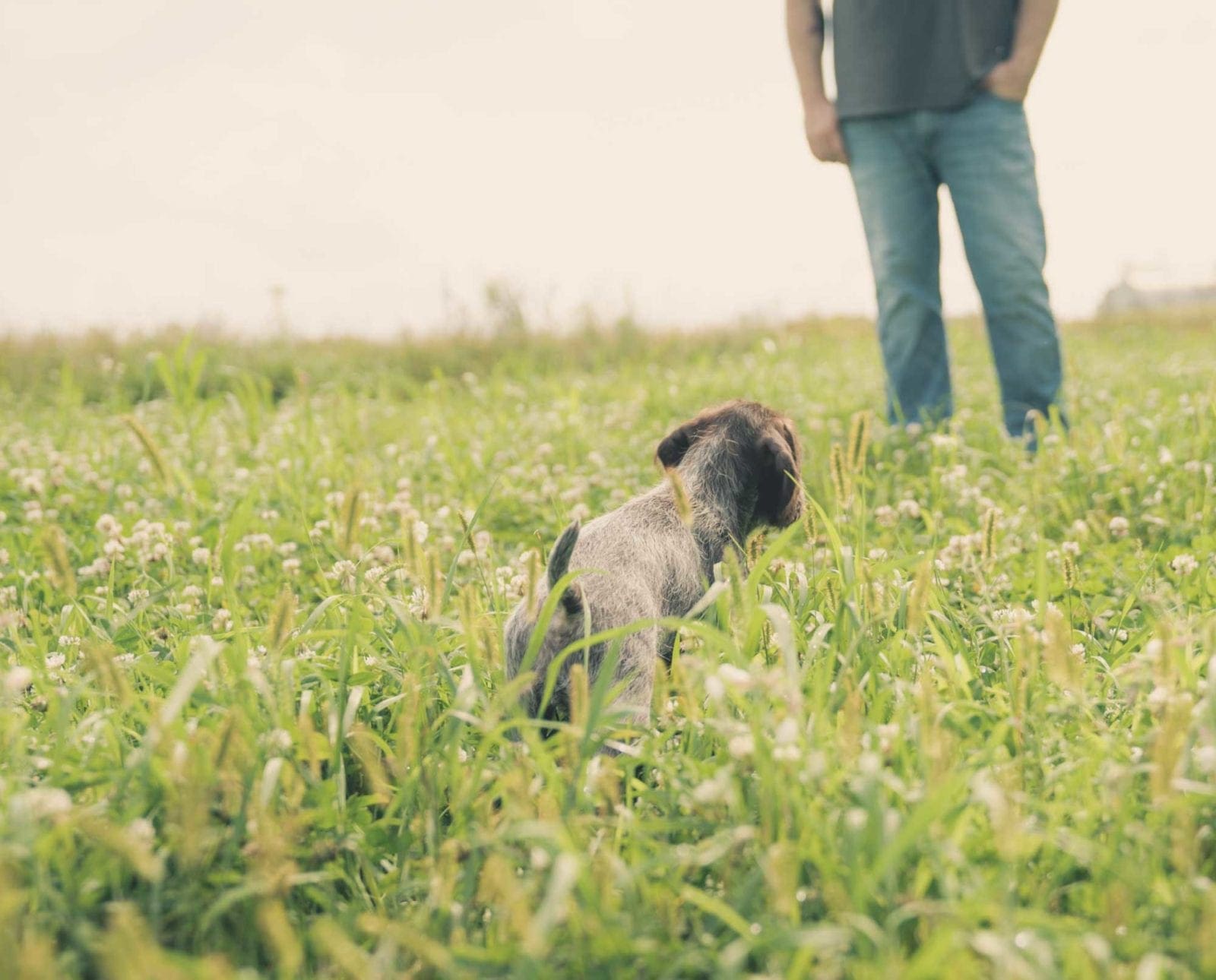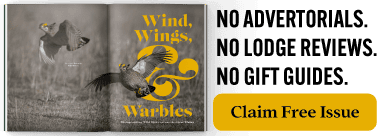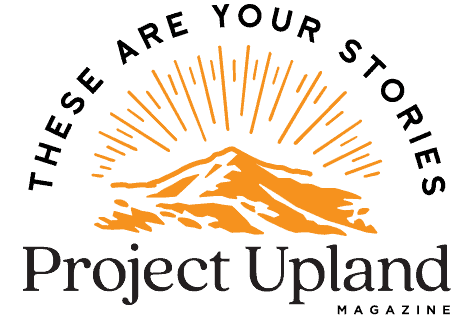Home » Hunting Dogs » Things a Novice Should Know about Dog Training
Things a Novice Should Know about Dog Training

A.J. DeRosa, founder of Project Upland, is a New England…
First time advice on dog training from a struggling novice
Beginning on the path of bird dog training is no small feat. It is a world of obstacles, failures, and defeat. But the challenge is worth the reward—and the companionship is worth a lifetime. Novice to novice, these are some important things we should know before we start this exciting and timeless journey.
Start with a good bird dog and a breed that works for you
When it comes to getting a bird dog, we all have a check list on what we want to do or what we want the dog to do. Whether the focus is on waterfowl, pheasants, grouse, or hares, we need to look at breeds that fit our vision. This can be a spaniel, pointing dog, retriever, or even a hound. We must consider temperament, size, and anything else relevant to our home lifestyle. Gun dogs are a 24/7 commitment. When you’re ready, research the breeder you intend to get your dog from.
The truth is many of us will change what the right breed and style works for us with time. Maybe we want to experience all sorts of different hunting dogs becasue that is part of who we are. My first dog as a kid was a Brittany, my second (and really my dog) is a Wirehaired Pointing Griffon. I had grand ideas about getting into duck hunting and the idea of versatility meant a lot to me. I learned with time that hunting upland game over a pointing dog is my flavor. While I think my next dog will be an English Setter, when my Griffon returns from 100+ yard retrieve on a winged bird, I often rethink it. Who knows what time will bring.
I recently spent some time training around another Wiredhaired Pointing Griffon. She would growl every time a person came near, which shocked me for a dog with a reputation for being soft. The dog feared just about everything: birds, guns, you name it. I had to ask the obvious question, “What happened?” The answer wasn’t what I expected. The behavior started with the breeder. Their line received a poor reputation for this overly fearful behavior, resulting in an occasionally aggressive showing. Add in some inexperienced bird dog training and this is what you get.
Selecting a puppy from the proper breeder takes homework.
A good bird dog is more about us than them
If we went about choosing a bird dog the right way, the success or failure of that dog falls on our shoulders. You don’t need to take this too seriously, since this is an exciting learning experience. Often the issues that arise with bird dog training falls on the handler, not the dog. Maybe we apply to much training pressure? We teach them bad habits, slack on their training, act out because we did not give them the tools and opportunities they needed. You need to be comfortable with failure.
The question is not whether the dog is ready to be a bird dog. It is coming to terms with the reality that we need more training than the bird dog. It can take years, decades, and multiple dogs to have a true handle on it. There is always something new to learn, something to improve, something to be humbled by.
You get back what you put in
This probably isn’t the first time any of us have heard that. Yet if anything remains true about building a bird dog, it’s that we get as much as we put in. A working dog requires time and dedication to mold it into a decent bird dog. It’s worth considering when we look at the amount of time we have in our lives to spend. But jobs, family, hobbies—whatever it may be—there needs to be time allotted for our hunting companion. Some of those can add up to the good reasons to not have a bird dog.
Now, we’re not all looking for a top-notch field trial dog. In fact just the idea of understanding that not all dogs are good in all circumstances is lost on many. Quail dogs may not make good grouse dogs, cover dogs may not make good prairie hunting dogs. Some dogs are great at adapting to many settings. That can be a breed thing or a breeder thing. At minimum us novices are just looking for a half decent bird dog. Putting our expectations in line with what we actually put into our dogs and ultimately what application the dog is for is critical.
Seek out experienced guidance in bird dog training
There is nothing wrong with having the guidance of a professional dog trainer. Whether we hire a trainer or join an organization like NAVHDA (North American Versatile Hunting Dog Association), the input of experienced trainers can sometimes make or break us. Like us, they have failed and experienced the good and the bad along the road to a good hunting dog, but at an even greater level. Sure you can find online articles and YouTube videos but being mentored by someone will have a huge impact on your success.
There is more than one right way to train a bird dog
We should all take it as a major red flag when someone forcefully voices a single opinion (as the only fact) on an open-ended subject like bird dog training. It is an unfortunate by-product of many activities, but dog training just happens to exaggerate it. It is imperative that both novice and expert trainers recognize the importance of neutrality and non-judgmental environments. Fostering the future of bird dog culture relies, now more than ever, on us recognizing that we are all at different levels, seek different goals, and want to just plain feel welcomed.
From debates on positive reinforcement, using treats to train, or simply different systems, training a bird dog can seem daunting. It requires and open mind, a willingness to learn, and the ability to be a good student.
We shouldn’t be unwilling to hear alternative methods or reasons, but we all have a responsibility to accept someone’s personal choices on the path of bird dog training. In the end we have to rely a lot on our own abilities to weigh through the BS, ask questions, and keep an open mind.
Social Media Can Destroy or Empower You
Success can have a blinding effect. And with a little time it does not take much to realize what worked for you may not work for someone else (or different dog). Do not find yourself playing the “expert” in social forums as it will only serve to eventually embarrass yourself. Be honest about your ability levels. It should not be a competition. Honesty will serve your dog better.
Its also important to be wary of keyboard experts. Temper advice with true expert opinions, and remember just cause someone says they are a professional trainer or breeder, does not make it true or guarantee ability. Anyone can open a kennel, and anyone can be a dog trainer. Just because someone has a lot of dogs does not equate to good experience or ability.
Look to dog clubs and research to really understand where advice is sound. These are the places you can find good breeders and good trainers.
I leave you with a candid look into my first year with my Griffon hoping it will bring some inspiration and hope when all seems impossible: First Season – A Project Upland Original Film
A.J. DeRosa, founder of Project Upland, is a New England native with over 35 years of hunting experience across three continents. His passion for upland birds and side-by-side shotguns has taken him around the world, uncovering the stories of people and places connected to the uplands. First published in 2004, he wrote The Urban Deer Complex in 2014 and soon discovered a love for filmmaking, which led to the award-winning Project Upland film series. A.J.'s dedication to wildlife drives his advocacy for conservation policy and habitat funding at both federal and state levels. He serves as Vice Chair of the New Hampshire Fish & Game Commission, giving back to his community. You can often find A.J. and his Wirehaired Pointing Griffon, Grim, hunting in the mountains of New England—or wherever the birds lead them.




You have just expressed in a few paragraphs what it usually takes a beginner years if ever to understand.
Thank You.
My gun dogs are two years old. Is it too late to train them?
I would never say anything is to late. Sure young dogs learn faster just like people. But it does not mean it is impossible. Just take some patience and never losing sight of enjoying the process.
No, When they are young pups we have a clean slate or what I like to call soft clay we can mold. We teach them processes or habits that we want them to have as a hunting partner. We do this as play when they are young so they grow up with those habits as what they have always known. If we wait until the dog is older they learn habits that may not be conducive to the job we want them to do. So now at 2 years old we have to unteach them any unfavorable habits and replace them with the habits we want. It will just take longer and those old habits could rear up again in time.
Older dogs that have not had training probably have not had the same exposure either and will be lacking confidence around new experiences. With the correct introduction things like gun fire can be introduced to an older dog. I would advise you find a pro trainer.
Keep in mind your dog might be 2 years old but their training level is that of a 6 month old. You need to set your expectations accordingly. All dogs have a limited amount of confidence in the bank at times in training we burn up some of that confidence and we have to take the time doing fun things with the dog to build the confidence reserves back up.
Thanks for sharing how gun dogs are a 24/7 commitment. I want to get a gun dog but I wanted to see if I was up for the challenge. I think I have all the time I need to commit to it so I’ll see what I can do about getting the right breed.